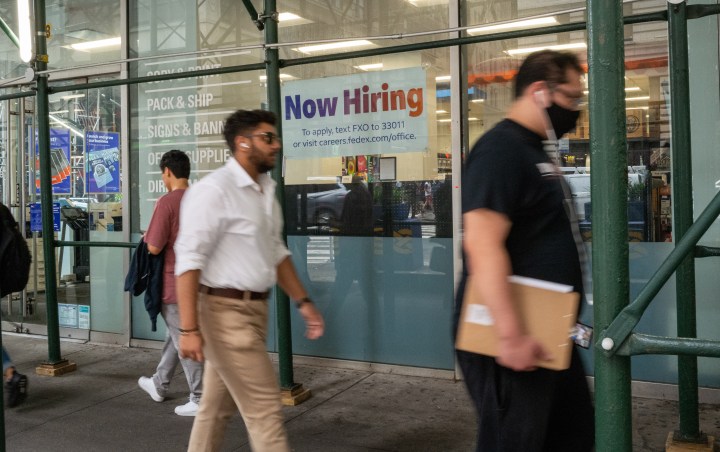
As the job market cools, “job churn” is leveling off from historic pandemic highs
As the job market cools, “job churn” is leveling off from historic pandemic highs

The number of job openings went up in December to a little over 11 million, according to the Job Openings and Labor Turnover survey from the Department of Labor. That’s up from 10.4 million in the month prior.
And while the number of openings remains way above its pre-pandemic level, the rates at which people quit their jobs — and at which companies hire — have been stagnating over the last few months.
That’s a sign that job churn has been starting to level off.
The rate at which people switch jobs can tell us a lot about whether they feel comfortable doing that. The high churn rate can be a sign that people are finding better jobs, said Peter Orazem, an economics professor at Iowa State University.
“That level of churn has been one of the sources of strength in U.S. productivity growth over the years,” Orazem said.
Early in the pandemic, many people moved around to jobs with better pay or better working conditions.
“That was the highest level of churn we’ve ever measured in the economy, both in terms of hiring, and in terms of quitting and leaving your job,” said Jason Furman, an economist at Harvard.
But throughout the last year, both quitting and hiring rates have come down. This is happening mostly in industries where consumer demand is weakening, like “real estate, wholesale and retail trade, and transportation and warehousing,” said Sinem Buber, lead economist at the job website, ZipRecruiter.
She added that may be because workers are worried a recession’s coming, so they’re staying put. At the same time, wage growth has been slowing.
“That means the people who are trying to switch their jobs for a better pay, right now, they don’t have that motivation anymore,” Buber explained.
That said, there’s still going to be plenty of job churn over the next year.
“I think it’s a reflection of an ongoing need to move back towards an economy that looks a little bit more like 2019,” said Betsey Stevenson, economist at the University of Michigan. “In terms of the mix of the types of goods and services that people buy.”
In other words, too many people work in the goods-producing sector, and not enough in services. Stevenson said the more people switch jobs, the greater the odds anybody can find a better one.
There’s a lot happening in the world. Through it all, Marketplace is here for you.
You rely on Marketplace to break down the world’s events and tell you how it affects you in a fact-based, approachable way. We rely on your financial support to keep making that possible.
Your donation today powers the independent journalism that you rely on. For just $5/month, you can help sustain Marketplace so we can keep reporting on the things that matter to you.











